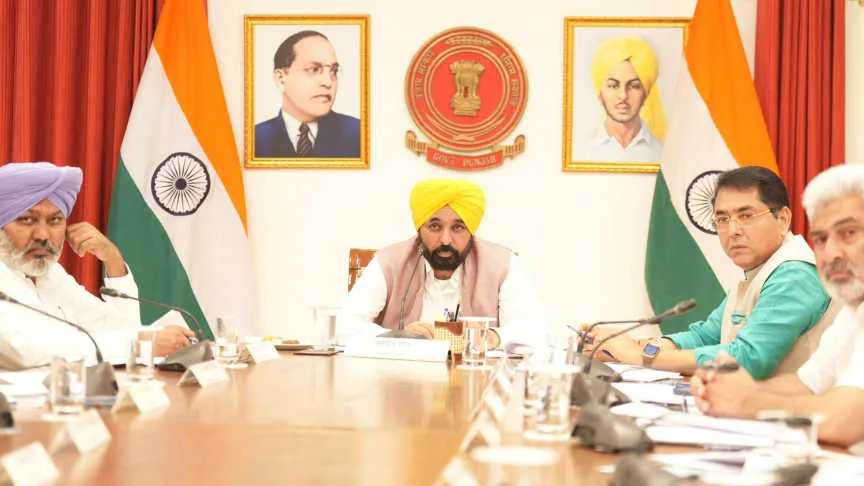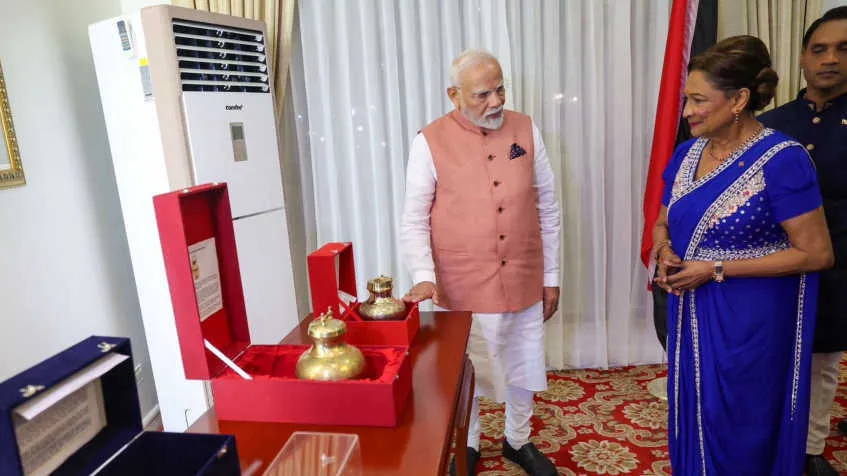In a significant development aimed at streamlining urban expansion and tackling the menace of illegal colonies, the Punjab Cabinet on Monday approved a new Land Pooling Policy. The policy, described as a voluntary and participatory model, seeks to include landowners as
stakeholders in the state’s planned growth initiatives while ensuring safeguards against coercion or exploitation.
The policy was approved during a meeting of the Council of Ministers held at Chief Minister Bhagwant Singh Mann’s official residence. With this move, the government aims to reverse decades of unregulated construction and unchecked colonisation, particularly in urban fringes
and peri-urban areas.
Voluntary Participation Emphasised
Punjab Renewable Energy Minister Aman Arora clarified that the scheme is completely voluntary. “There is no force, no pressure. The farmer has complete authority. Nothing will happen without their written consent,” he stated.
The policy will be launched in 27 selected cities in its first phase, where unauthorised colonies and unregulated development have been most prevalent. Landowners in these areas can now opt to pool their land with the government. They can also continue farming, sell their land, or develop it independently if they so choose.
What Farmers Will Get?
Under this land pooling scheme, for every one acre of land pooled with the government, the farmer will receive a 1,000-squareyard residential plot and a 200-square-yard commercial plot. The government will undertake full infrastructure development on the returned plots, including the construction of roads, water supply, sewerage, street lighting, and public parks.
Until the final plots are ready and handed over, the landowners will receive annual compensation of Rs 30,000 per acre, for a maximum of three years.
Each landowner will receive an entitlement certificate detailing the plots they will get in return. The beneficiaries will also have the option to choose between two 500-square-yard plots or other configurations, based on policy guidelines. The returned plots, once developed, are expected to be worth up to four times the current market value of the contributed land.
Provisions for Larger Land Holdings
The policy also lays down incentives for those contributing larger tracts of land.
A farmer contributing nine acres of land will get back three acres of developed land, suitable for constructing a group housing society.
A consortium of farmers pooling 50 acres will collectively get 30 acres of developed land in return.
This model of proportionate return based on larger contributions aims to encourage cooperative participation among landowners while facilitating larger development projects.
No Private Players in Initial Handover
To address concerns around land exploitation by private developers, the government has clarified that the land will be handed over directly to the state and not to any private entity. Only after the necessary infrastructure is developed will the farmers receive their plots.
This step is designed to break the existing nexus of land sharks, illegal colonisers, and certain local officials, which has historically led to haphazard urban sprawl without basic civic amenities.
Benefits for Small and Marginal Farmers
The policy has been rationalised to favour small and marginal landowners, who often suffer the most in urbanisation drives. By including them as direct beneficiaries, the government aims to distribute development benefits equitably.
Farmers will have the freedom to retain their share of developed land or sell it in the open market. There will be no compulsion to sell it back to the government or any third party. This flexibility provides landowners with the ability to make decisions based on their own financial needs and aspirations.
Associated Cabinet Approvals
In addition to the land pooling policy, the Cabinet also cleared several related measures aimed at enhancing the effectiveness of urban development regulation in Punjab.
1. Partial Surrender and Cancellation of Licenses
The Cabinet approved a policy allowing for the partial surrender and conditional cancellation of licenses granted under the Punjab Apartment and Property Regulation Act (PAPRA), 1995. This also applies to approvals given for industrial parks. The new policy, notified earlier in March 2025, permits partial withdrawal of licensed land subject to specific conditions. It also provides for the suspension or cancellation of project licenses if they fail to comply with the terms.
This move is aimed at clearing the backlog of non-compliant or stalled development projects that continue to occupy land without making a meaningful contribution to urban growth.
2. Incentives for Lump Sum Payments
To improve revenue generation and reduce payment defaults, the Cabinet approved an incentive scheme for plot allottees. Those who make a lump sum payment of 75% of the plot cost will be eligible for a 15% discount. This incentive applies to residential, commercial, and other properties allotted by the government.
The decision is expected to ease the financial burden on honest buyers while improving cash flow for government development agencies.
3. Revision of Charges for Promoters
The Cabinet also approved a revision in real estate development charges: External Development Charges (EDC), Change of Land Use (CLU) Charges
License Fees (LF)
These charges were last revised in May 2016, with an annual increment clause of 10% from April 1 each year. However, the annual increase was waived in previous years. With the latest decision, the revised rates have been implemented from April 1, 2020, reflecting a cumulative increase of around 77%.
Going forward, the charges will increase by 10% annually from April 1, 2026. The move aims to ensure that real estate promoters contribute adequately to the development of infrastructure and civic services.
End of Illegal Colonisation?
By integrating these multiple policy moves with the new Land Pooling Scheme, the Punjab government is aiming for a comprehensive approach to reform urban land management. The policy targets unregulated colonies that have mushroomed without proper roads, drainage, or power infrastructure.
A government spokesperson stated that a strict ban will be enforced on illegal colonies and unauthorised development. This will be accompanied by greater surveillance and coordination among local bodies and the state urban development department.
Farmer-Centric, Yet Structurally Balanced
While the scheme is structured to favour the landowners, the policy also ensures that the resulting urban spaces are not just profitable but also livable. By mandating complete infrastructure development before handing over plots to landowners, the government intends to avoid the emergence of poorly connected, half-developed residential areas.
Moreover, since the returned land comes with clear titles and basic services, the landowners stand to gain significantly whether they choose to live, rent, or sell.
Cabinet Minister Arora further stated that while the policy presents a viable model for participatory urban expansion, its success will depend on transparent implementation and timely completion of infrastructure development. Past attempts at similar schemes in other states have faltered due to delays, bureaucratic hurdles, and litigation.
Punjab’s decision to make this a fully voluntary scheme with upfront written consent mechanisms marks a crucial shift from the often-criticised model of forced acquisition. The real test, however, will be in execution—ensuring that the benefits promised on paper reach the landowners without administrative delays or procedural ambiguity.
As urbanisation continues to expand, policies like this could define how states balance growth with social equity. If implemented efficiently, Punjab’s land pooling policy may well offer a replicable framework for other states seeking to manage urban growth while safeguarding farmer interests.























